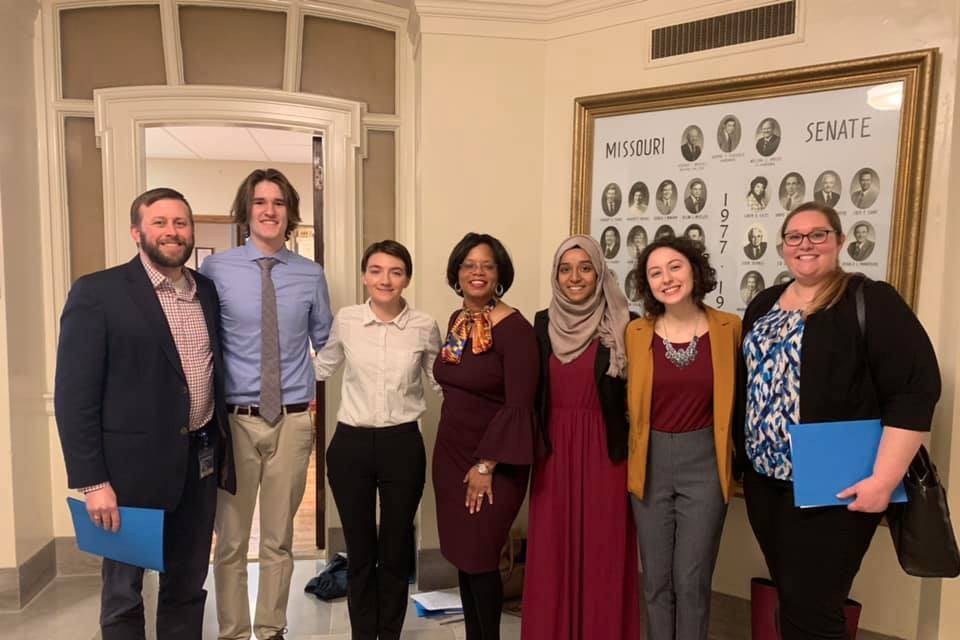Business Service Leaders Advocate in Jefferson City
Service Leaders from the Chaifetz School of Business, in collaboration with the Center for Service and Community Engagement at Saint Louis University, recently visited Jefferson City to have important conversations with local officials and senators for Advocacy Day 2019. Advocacy Day allows Saint Louis University students and faculty to use their voices to share their opinions regarding current policies that are in contention at the state level.
“It is essential that service leaders work not only to address the immediate needs of those affected by poverty but also to work for systemic and social change,” said Ben Smyth, Service Leadership Program manager. “Being a servant leader means asking the difficult questions and seeking lasting solutions to problems...advocacy is one way to work for such solutions.”
The purpose of this year's trip was to lobby against Missouri Senate Bill 4 and Missouri Senate Bill 76. These bills seek to implement work requirements for safety net programs, such as Medicaid and SNAP (food stamps). Many service leaders, through tutoring and weekly service, work with recipients of these programs.
“While it is daunting, you actually get to go through a training program with the leader of Advocacy Day, Jessica Trout,” said Adam Rieder, a freshman in the Service Leadership Program. “Before you actually go to Jefferson City, she goes through an hour training seminar with you and tells you what to do, how to talk to senators, how to do research for these bills and makes sure you’re prepared.”
Rieder said once he was in Jefferson City, he found the process of lobbying to Missouri senators came naturally to him.
“It was a rather informal conversation with these senators because they are just normal people, and they don’t want to have a structured formal conversation — it's more so colloquial and informal,” Rieder said. “With training, we were able to incorporate the things Jessica taught us with a calibrated movement into the conversation we had with these senators.”
The Service Leadership Program seeks to instill a sense of responsibility and advocacy throughout the program to allow students to have the confidence to make their voice heard on the political scene.
“I believe a big part of Service Leadership is that whenever you see changes you want to happen, you don’t sit around — you be that person to initiate that change,” Rieder said. “Advocacy Day was a great example of being able to say, ‘hey, here's an issue I think needs to be changed. Should I sit around and do nothing? No, I’m going to initiate the changes I want to see today right here and right now.’”
